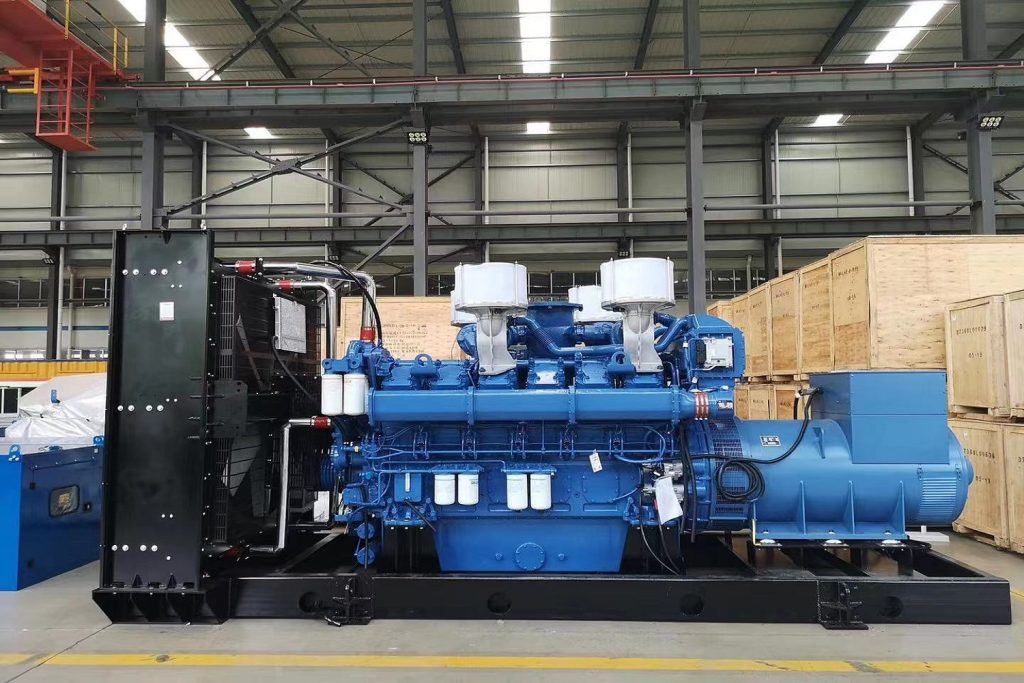Introduction
In today's modern world, electricity plays a crucial role in powering our daily lives. From lighting our homes to running industries, electricity is an indispensable resource that we rely on for almost everything. However, ensuring a stable and reliable supply of electricity can be challenging, especially in the face of increasing demand and the growing complexity of power systems. Grid stability, in particular, is a critical aspect of maintaining a reliable power supply, and diesel generators have emerged as a key technology in achieving this goal.
Grid Stability and Its Importance
Grid stability refers to the ability of an electrical grid to maintain a constant frequency and voltage within acceptable limits under various operating conditions. A stable grid is essential for ensuring the reliable and uninterrupted supply of electricity to consumers. Any deviation from the desired frequency or voltage can lead to disruptions in power supply, equipment damage, and even blackouts.
Grid stability is especially important in today's interconnected power systems, where the balance between electricity generation and consumption must be maintained in real-time. With the increasing integration of renewable energy sources like wind and solar power, which are inherently variable and intermittent, ensuring grid stability has become even more challenging.
The Role of Diesel Generators in Ensuring Grid Stability
Diesel generators have long been recognized as a reliable and cost-effective solution for ensuring grid stability. These generators are capable of quickly ramping up or down their output to meet fluctuations in electricity demand or supply, making them ideal for providing backup power during emergencies or periods of high demand.
One of the key advantages of diesel generators is their ability to provide reliable power independent of external factors such as weather conditions or fuel availability. Unlike renewable energy sources, diesel generators can operate continuously for extended periods, providing a stable source of power even in the absence of sunlight or wind.
Diesel generators are also highly versatile and can be easily integrated into existing power systems, either as standalone units or in parallel with other generators. This flexibility allows grid operators to deploy diesel generators strategically to address specific grid stability issues or to provide backup power in critical locations.
In addition to their reliability and flexibility, diesel generators are also known for their durability and longevity. With proper maintenance and care, diesel generators can operate for decades, providing a reliable source of backup power for years to come.
Case Studies and Examples
To illustrate the effectiveness of diesel generators in ensuring grid stability, let us consider a few case studies and examples from around the world:
1. Island Grids: Many remote islands rely on diesel generators as their primary source of electricity due to the absence of grid connections. These diesel generators play a crucial role in maintaining grid stability and providing reliable power to residents and businesses on the islands.
2. Data Centers: Data centers are highly sensitive to power disruptions, as even a brief outage can lead to data loss and service interruptions. Diesel generators are commonly used in data centers to provide backup power and ensure continuous operation in the event of a grid failure.
3. Emergency Response: During natural disasters or other emergencies, diesel generators are often deployed to provide temporary power to critical facilities such as hospitals, emergency shelters, and communication centers. These generators play a vital role in ensuring the continuity of essential services during times of crisis.
Regulatory and Environmental Considerations
While diesel generators offer numerous benefits in terms of grid stability and reliability, there are also regulatory and environmental considerations that must be taken into account. In many regions, emissions regulations restrict the operation of diesel generators to mitigate air pollution and reduce greenhouse gas emissions.
To address these concerns, manufacturers have developed advanced emission control technologies, such as catalytic converters and particulate filters, to reduce the environmental impact of diesel generators. In addition, alternative fuel options, such as biodiesel and natural gas, are being explored as cleaner and more sustainable alternatives to traditional diesel fuel.
Grid operators and policymakers are also exploring new approaches to grid stability that prioritize energy efficiency, renewable energy integration, and demand-side management. By leveraging smart grid technologies, energy storage systems, and demand response programs, grid operators can enhance grid stability while reducing reliance on fossil fuel-based backup generators.
Conclusion

In conclusion, diesel generators play a critical role in ensuring grid stability and maintaining a reliable power supply in modern power systems. With their reliability, flexibility, and durability, diesel generators are well-suited to address the challenges of grid stability, especially in the face of increasing demand and the integration of renewable energy sources.
As inquiry continue to navigate the complexities of modern power systems, diesel generators will remain a key technology for providing backup power, supporting critical infrastructure, and ensuring the uninterrupted delivery of electricity to consumers. By balancing the benefits of diesel generators with regulatory and environmental considerations, grid operators can achieve a sustainable and resilient power system that meets the needs of society both now and in the future.
